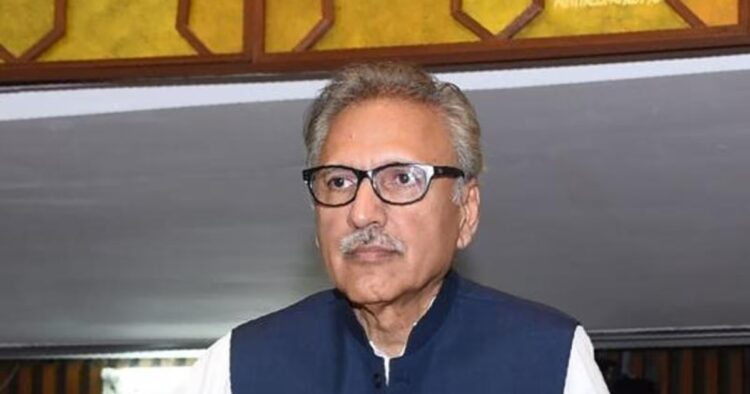Pakistan’s President Dr. Arif Alvi has voiced his regret regarding the expulsion of what he terms as “competent people” from politics, hinting at the incarceration of former Prime Minister Imran Khan. The President, who was once a senior member of Khan’s Pakistan Tehreek-e-Insaf (PTI) party, made these remarks during an event focused on financial inclusion and digital transformation.
Imran Khan, the former Prime Minister of Pakistan, is currently serving a jail sentence after being convicted in corruption cases. His political career has been severely impacted, with him being barred from contesting elections and holding public office for a decade. This situation has raised concerns about political exclusion and respect for the public mandate.
Addressing the Hosting Business Net 2024 event, President Alvi emphasized the crucial connection between financial inclusion and political participation. He stressed that achieving financial inclusion is impossible without active engagement in politics. Alvi commended the trust shown by millions of young voters in the democratic process, highlighting the importance of respecting electoral mandates.
President Alvi’s comments included veiled references to the current political scenario in Pakistan. He lamented the expulsion of competent individuals from the political sphere, indirectly pointing towards Imran Khan’s situation. Alvi’s concerns extended to the closure of social media platforms in Pakistan, which he attributed to a lack of intellectual capacity to handle criticism.
In a recent statement, President Alvi urged politicians and institutions to recognize the significant mandate given by citizens, suggesting that Imran Khan’s PTI should be allowed to form the government despite his imprisonment. This call for recognition underscores the need for upholding democratic principles and respecting electoral outcomes.
During the event, President Alvi highlighted Pakistan’s potential as a vibrant nation blessed with abundant natural resources. He stressed the importance of investing in intellectual development and capacity building. Drawing parallels with China’s success in poverty alleviation through education and health investments, Alvi emphasized the necessity of political inclusion for financial progress.
President Alvi proposed the utilization of technology for internet voting (i-voting) and Electronic Voting Machines (EVMs) to enhance electoral processes. He lauded the millions of young voters who have shown confidence in the democratic system, indicating a growing role for youth participation in shaping the country’s political landscape.
President Arif Alvi’s remarks shed light on the challenges of political exclusion and the importance of upholding democratic principles in Pakistan. As the country navigates through these complexities, there is a growing emphasis on inclusivity, respect for mandates, and harnessing technology for progressive electoral reforms.

















Comments